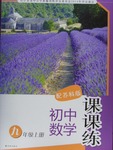题目内容
【题目】In the countries of South and Southeast Asia, the elephant has been an important part of the culture, economy and religion for centuries.And nowhere more so than in Thailand.Unlike its African cousin, the Asian elephant is easily domesticated(驯化).The rare so-called white elephants have actually lent the power of royalty to its rulers,and until the 1920s the national flag was a white elephant on a red background.To the early Western visitors, the country's romantic name was“ Land of the White Elephant".
Today, however, the story is very different.Out of work and out of land, the Thai elephant struggles for survival in a nation that no longer needs it.The elephant has found itself more or less deserted by previous owners who have moved on to a different economic world and a society in the western part.And while the elephant's problems began many years ago, now it has a very low national advantage.
How does the national symbol turn into ignored animals? It is a story of worse environment and the changing lives of the Thais themselves.According to Richard Lair, Thailand's expert on the Asian elephant and author of the report Gone Astray, at the turn of the last century, there may well have been as many as 100,000 national elephants in the country.
In the north of Thailand alone, it was estimated(估计)that more than 20,000 elephants were employed in transport, 1,000 of them alone on the road between the cities of Chiang Mai and Chiang Saen.
This was at a time when 90 percent of Thailand was still forest---a habitat that not only supported the animals but also made them necessary to carry goods and people.Nothing ploughs through thick forest better than lots of sure-footed elephants.
By 1950 the elephant population had dropped, but still to the number of 13, 397.However, today there are probably no more than 3,800, with another l,350 wandering free in the national parks.But now, Thailand's forest covers only 20 percent of the land.This deforestation(采伐森林)is the central point of the elephant's difficult situation, for it has effectively put the animals out of work.This century, as the road network grew, the elephant's role as a beast of burden decreased.
【1】What can we know about African elephants from the passage?
A. It is of little value to domesticate them.
B. It is hard to domesticate them.
C. They are living a better life than Asian elephants
D. Their fate is quite similar to that of Asian elephants.
【2】Thailand was once called "Land of the White Elephant" because ________.
A. white elephant was a national symbol until the 1920s
B. white elephant is rarely seen and thus very special
C. white elephant has helped kings to gain the ruling power
D. this name was so romantic that it was popular among visitors
【3】Why is the Thai elephant "out of work", according to the author?
A. Because there are too many elephants but too few jobs.
B. Because the elephants can't do labor work any longer.
C. Because the government pays little attention to the problem.
D. Because the elephants are no longer useful to their owners.
【4】The passage is most probably from ________.
A. a travel guide B. a history book
C. a popular science magazine D. an official announcement
【答案】
【1】B
【2】A
【3】D
【4】C
【解析】试题分析:这是一篇关于泰国大象的文章。文章通过对泰国大象目前现状的描写,呼吁人们重视生态环境,保护大象。
【1】细节推理题。由文中第一段第三句“Unlike its African cousin, the Asian elephant is easily domesticated(驯化). ”可知,不像非洲象那样,亚洲象很容易驯化。因此,可以得知,非洲象很难驯化。故选 。B
【2】细节理解题。由文章第一段“In the countries of South and Southeast Asia, the elephant has been an important part of the culture, economy and religion for centuries. And nowhere more so than in Thailand.”可知,在南亚和东南亚国家,长达几个世纪以来大象在文化、经济和宗教领域都是很重要的一部分。尤其是泰国。泰国也拥有着稀有的白象。“To the early Western visitors, the country's romantic name was“ Land of the White Elephant".” 所以对早期的西方游客来说,泰国就是“白象之国”。故选A。
【3】细节理解题。由第二段第二句“Out of work and out of land, the Thai elephant struggles for survival in a nation that no longer needs it. The elephant has found itself more or less deserted by previous owners ”可知,失业和失去住所,泰国大象在一个不再需要它的国家为了幸存而斗争。这些大象发现它们或多或少的都被先前的主人抛弃了。所以大象失业是因为它们不再被人们需要。故选D。
【4】文章来源题。文章主要是写目前泰国大象的处境堪忧,呼吁人们停止对大象残忍做法。所以文章应该是来源于流行科学杂志。故选C。

 课课练江苏系列答案
课课练江苏系列答案 名牌中学课时作业系列答案
名牌中学课时作业系列答案